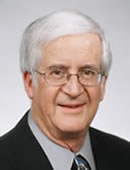7/14/2009·
Human Factors
Industry Standards
By:
Kristopher J. Seluga, PE
A standard can be defined as a document issued by a recognized agency, and dealing with design and/or safety requirements relating to a specific product or type of activity. Such agencies include the U.S. Occupational Safety and Health Administration (051-IA) and the American National Standards Institute (ANSI). OSHA standards are generally legally binding for an employer, while ANSI standards are generally of an advisory nature. The term "industry standard," however, is ordinarily taken to have a broader meaning, including formal standards as just defined, and also including designs and procedures not required in formal standards, though prevailing in a specific industry, and which represent generally accepted custom and practice.














